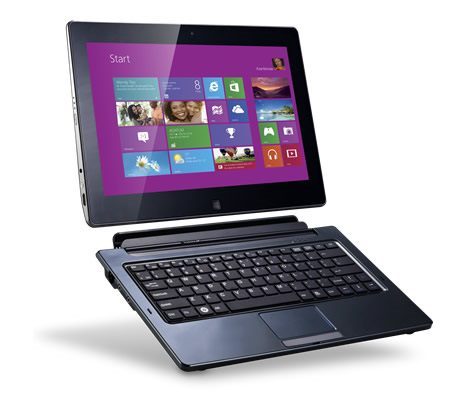As the world rapidly embraces digitalization, the need for affordable access to smart devices has become more urgent than ever.
In Ghana, this demand is reaching a critical point, with more than 4.9 million people still without a functional smartphone.
Experts say the country cannot fully participate in the global digital economy unless it takes bold steps to improve accessibility—starting with local smartphone assembly.
Several African countries have taken bold steps toward local smartphone assembly.

These include South Africa, where companies like Onyx Connect and Mint Electronics operate; the Democratic Republic of Congo, home to VMK’s Elikia phones; Uganda, where Mara Phones are produced by the Mara Corporation; and Nigeria, with manufacturers such as AfriOne and Imose Mobile.
While these companies still rely on importing key components from abroad, they take pride in assembling the devices locally—from the circuit board upwards—demonstrating technical capability and commitment to industrial growth.
It is also worth noting that even global tech giants like Apple, Samsung, Huawei, and Tecno import various components from different countries for their manufacturing processes.
Local assembly, therefore, remains a strategic and globally accepted model for building competitive smartphone industries.
According to the International Data Corporation (IDC), Africa’s smartphone market grew significantly in the first quarter of 2024, with imports rising by 17.9% year-on-year to 20.2 million units. In contrast, feature phone imports declined by 15.9% over the same period, totaling 18.8 million units.
With global trade tensions—exemplified by former U.S. President Donald Trump’s imposition of tariffs—and the African Continental Free Trade Area (AfCFTA) aiming to boost intra-African commerce, a strong opportunity exists for Ghana-assembled smartphones to serve as a competitive export product across the continent.
One of the latest voices to champion this cause is the Chief Executive Officer of MTN Ghana, Stephen Blewett.
Speaking during a media interaction event dubbed “Time with Stephen”, the CEO made a compelling case for the government to incentivize local smartphone assembly and eliminate taxes on imported components.
Tax cuts to spur local assembly
Mr. Blewett called on the government to scrap import duties and taxes on components used in assembling smartphones.
He believes this move would attract investments, support local entrepreneurship, and lower the cost of smart devices for Ghanaians.
Until such assembly plants are fully operational, Mr. Blewett also proposed a temporary suspension of taxes on imported smartphones to make them more affordable in the interim.
“Digitalization must be for everyone,” he stressed. “A strong local assembly industry can deliver better-quality smartphones at competitive prices, significantly benefiting Ghanaians.”

Digital divide: Millions still offline
Despite Ghana’s reputation as a digitalization leader in Africa, the data tells a sobering story. According to the Ghana Statistical Service, 24.6% of Ghanaians aged 15 and above—about 4.9 million people—do not own smartphones.
The digital gap is wider among women, with nearly three million females lacking access to smartphones compared to 1.8 million males.
This inequality is not just a technological problem—it’s a developmental one.
Without access to smart devices, many Ghanaians are excluded from mobile banking, digital ID services, online education, e-commerce, and government digital services.
“We must close this gap if we want to achieve full digital transformation,” Mr. Blewett stated.
Progress made, but more needed
Ghana has taken important steps in digitalization, including the rollout of mobile money, Ghana Card integration, and digital public services.
But telecommunications industry experts like Mr Blewett insists that these gains will remain superficial unless the digital infrastructure is matched with inclusive access to devices.
“The digital economy is not just about mobile money,” Mr Blewett said. “We need to ensure that every Ghanaian can access a smartphone—whether for education, business, or personal empowerment.”
He also advocated for increased investment in local innovators who are building Ghanaian tech solutions.
“Let’s support entrepreneurs who are creating digital tools tailored to our unique needs.”
According to data from the Ghana Statistical Service, approximately 4.9 million Ghanaians aged 15 years and older do not own a functional smartphone.
This disparity is even more pronounced among females, with nearly three million women lacking smartphones compared to 1.8 million men.
The percentage of the population without smartphones aligns closely with the number of people who remain offline.
Statistics indicate that one in every four Ghanaians (24.6%) does not own a smartphone.
Among males, the percentage stands at 19.2%, while among females, it is significantly higher at 29.6%.
This digital gap, Mr. Blewett emphasized, must be closed for Ghana to maximize the benefits of digitalization.
The rise and fall of rlg communications
Ghana has attempted smartphone assembly before.
rlg Communications, founded by Roland Agambire in 2001, began as a phone repair company and rose to become a local tech icon. By 2010, rlg was assembling mobile phones, laptops, and set-top boxes.
Its landmark devices—like the G-Series phones, MSG1 laptops (in partnership with Microsoft), and Uhuru laptops—offered a glimpse of what a local tech industry could become.
The company also trained thousands in ICT and was contracted by government to supply over 100,000 laptops to schools.
However, rlg’s promising trajectory was derailed by controversies around government contracts, tax issues among others.
Its eventual collapse cost Ghana a valuable national tech asset—and a significant number of jobs.
In hindsight, industry watchers argue that rlg should have been supported and rehabilitated, not abandoned.
Many global companies have had their struggles, but governments often step in to protect such industries due to their national importance.
Samsung and Celltel’s unfinished plans
In 2012, Samsung announced plans to build a mobile phone assembly plant in Ghana, but it failed to take off.
In 2020, Celltel Networks Limited signed a $5.5 million deal with China Hainergy to establish a smartphone assembly operation—but to date, large-scale production remains elusive.
Rwanda’s success story: A model for Ghana
One shining example Ghana could emulate is Rwanda’s Mara Phones initiative.
The country established Africa’s first high-tech smartphone manufacturing plant in 2019, producing devices with locally manufactured motherboards and components imported from China and Turkey.
The Mara factory has been hailed as a major step toward self-reliance and job creation.
Ghana, with its educated youth and growing tech ecosystem, could follow a similar model.
Smart schools, smarter strategy
In 2023, Ghana launched the Smart Schools Project to enhance digital education by distributing 1.3 million tablets to high school students.
These tablets, preloaded with textbooks and learning materials which represent a crucial leap in digital learning are being imported.
But as of early 2024, only 70,000 tablets had reached just 30 schools—well below the target.
A local assembly plant would have expedited procurement and cut costs, allowing the government to meet targets faster and more affordably.
Why local smartphone assembly makes sense
Beyond device access, local assembly offers a range of national benefits:
Job creation
Thousands of direct and indirect employment opportunities in tech, logistics, and retail.
Technology transfer
Partnerships with global tech firms would boost Ghanaian engineering capacity.
Reduced import dependency
Boosting local production would reduce foreign exchange pressures.
Digital inclusion
More citizens would be connected and empowered.
Economic diversification
Developing a hardware manufacturing sector would broaden Ghana’s industrial base.
Now is the time to build
Mr Blewett’s call for local smartphone assembly is more than a business proposal—it’s a national development imperative.
The digital future is already here, but unless Ghana ensures that its citizens have the tools to participate, the benefits will remain out of reach for millions.
Government policy, private sector investment, and international partnerships must now align to make local smartphone assembly a reality.
With the right support, Ghana can become a smartphone production hub in West Africa—unlocking new economic opportunities and driving inclusive digital growth.
By ELVIS DARKO, Accra
- Mahama unveils Code of Ethics for appointees - 5 May 2025
- No system breach, MoMo is safe, secure- MTN - 5 May 2025
- Historic CJ Torkornoo’s reinstatement demo ends peacefully - 5 May 2025




